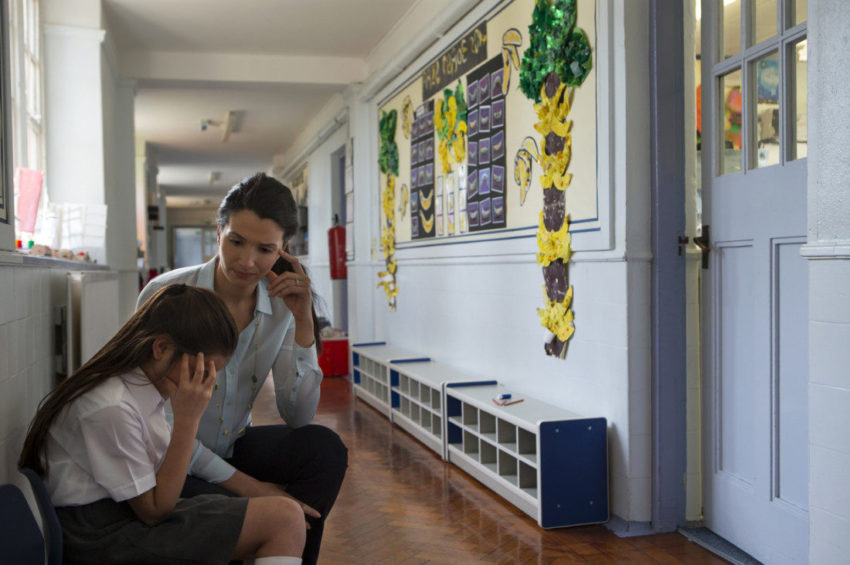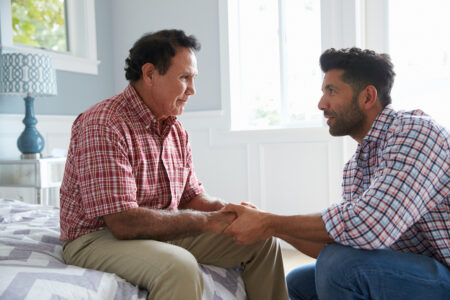
Share On Social!
This is part of our Mental Health & Latino Kids: A Research Review »
Current research is lacking
Latino youth suffer disproportionately from mental health issues compared to their peers.
But there is a relative lack of research dedicated to interventions aimed at addressing the diagnosis and treatment of mental health problems in this population.
Family and community interventions are needed
Immigration, acculturation, discrimination, and poverty-related stress have all been identified as issues that affect Latino youth, and these often overlap and interact in complicated ways.
While physical activity-based interventions have been shown to have a positive effect on mental health among Latino children, family and community-based interventions are also necessary to confront the issues that contribute most to the development of mental health and behavioral problems.
In 2016, Ashoka and the Robert Wood Johnson Foundation announced a partnership called the Children’s Wellbeing Initiative, which was created to provide support for and increase the exposure of projects dedicated to fostering positive identity and stable relationships for children, especially minority children.59
Several of the projects in the Children’s Wellbeing Initiative address problems specific to the mental health and well-being of Latino children, and, though the impact of these programs has yet to be evaluated, they are promising:
- The César Chávez Futbol Academy, in Salinas, CA, was created to increase the confidence and academic performance of Latino children through engagement with soccer. Participants in the program are required to maintain a 3.0 grade point average and complete community service projects in exchange for free registration, equipment, jerseys, instructional clinics, travel, and tutoring.60
- Another sports-based project is Chalk Talk, a culturally competent mental health intervention based in Boston that combines group therapy with sports participation. The intervention includes 28 therapy sessions with 7 weeks each of basketball, soccer, flag football, and indoor rowing.61
Research needed on young children’s mental health
Research addressing the mental health of young Latino children ages 0-5 is particularly important, as exposure to toxic stress places children at high risk for several negative health outcomes in adulthood, including depression.62
Extreme poverty is a risk factor for toxic stress, and has been identified as a contributor to mental health and behavioral problems in Latino children.
Two of the projects highlighted in the Children’s Wellbeing Initiative address early childhood mental health:
- The Pediatric Social Work and Home Visiting initiative in Omaha, NE was created to target the early identification of behavioral and developmental problems in children ages 0-5 while also increasing access to treatment and support for children and families. The project is a partnership with pediatric clinics in low-income areas, where children are screened for behavioral and developmental risk factors. Those at high risk receive home visits from social workers.63
- The Early Childhood Well Being project in San Antonio, TX is a mental health referral program for children ages 0-6. Children are most often referred by teachers based on behaviors exhibited in the classroom. The program includes parent-child and teacher-child interaction strategies and social skills training. A partnership has also been created between the Early Childhood Well Being project and a local Federally Qualified Health Center, where children who require additional psychosocial interventions may be referred.64
Another initiative dedicated to early childhood well-being is Baby’s Space, a child-centered curriculum focused on nurturing the whole child by creating and supporting nurturing, consistent, and warm relationships between children, parents, caregivers, and other family members.65
Teachers receive training in the implementation of Creative Curriculum, a comprehensive curriculum that builds social, physical, cognitive, language, and emotional skills through play, discovery, and the formation and maintenance of relationships.65
Evaluations of programs like these are needed.
More from our Mental Health & Latino Kids: A Research Review »
- Introduction & Methods
- Key Research Finding: Issues facing Latino kids
- Key Research Finding: Latino kids access to care
- Key Research Finding: The migration experience
- Key Research Finding: Latino family issues
- Key Research Finding: Latino community and school issues
- Key Research Finding: Programs with promise
- Key Research Finding: Policies with promise
- Policy Implications
- Future Research Needs (this section)
References for this section »
61. Cohen, D. Changemakers – Children’s Wellbeing – Fusing Sport and Therapy to Heal and Strengthen At-Risk Youth. (2016). Available at: https://network.changemakers.com/challenge/childrenswellbeing/refining/fusing-sport-and-therapy-to-heal-and-strengthen-youth. (Accessed: 31st August 2017)
62. Johnson, S. B., Riley, A. W., Granger, D. A. & Riis, J. The Science of Early Life Toxic Stress for Pediatric Practice and Advocacy. PEDIATRICS 131, 319–327 (2013).
63. Habrock, J. Changemakers – Children’s Wellbeing – Pediatric Social Work & Home Visiting. (2016). Available at: https://network.changemakers.com/challenge/childrenswellbeing/sharing-your-vision/pediatric-social-work-home-visiting. (Accessed: 31st August 2017)
64. Cardenas, F. Changemakers – Children’s Wellbeing – Early Childhood Well Being (ECWB). (2016). Available at: https://network.changemakers.com/challenge/childrenswellbeing/refining/early-childhood-well-being-ecwb. (Accessed: 31st August 2017)
65. Baby’s Space. Curriculum Philosophy and Overview. Baby’s Space Available at: http://www.babyspace.org/curriculum-philosophy-and-overview.html. (Accessed: 28th December 2016)
Explore More:
Healthy Families & SchoolsBy The Numbers
142
Percent
Expected rise in Latino cancer cases in coming years



